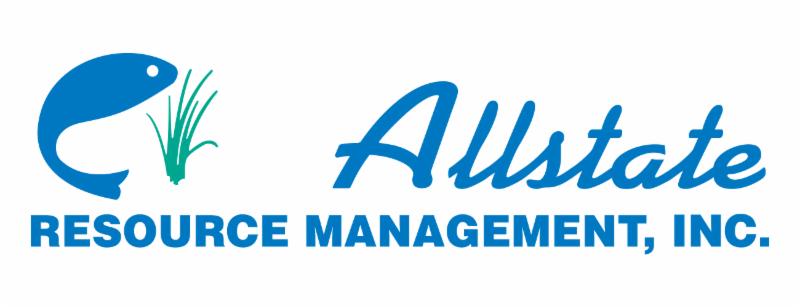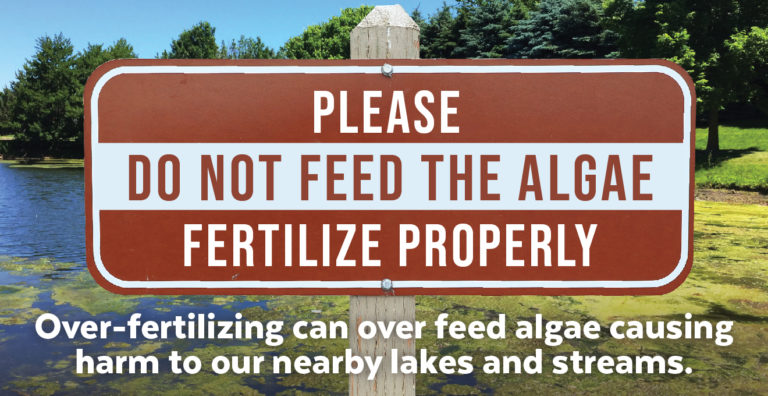Violation Remedies: Self Help vs. Injunction by Jeffrey Rembaum, Esq. of Kaye, Bender, Rembaum
Imagine this scenario: you are on the board of directors of your association. The association has repeatedly requested that an owner pressure wash their dirty roof to bring it into compliance with the community standards, but the owner refuses to do so. The association has already sent a number of demand letters and even levied a fine and perhaps a suspension of use rights, too, but the owner still will not comply. What is the association’s next step?- Is it time to file a lawsuit to compel compliance? Chapters 718 (governing condominiums), 719 (governing cooperatives), a 720 (governing homeowners associations), Florida Statutes, authorize the association to bring an action at law or in equity to enforce the provisions of the declaration against the owner.
or
- Is it time for the association to use its “self-help” remedy? In fact, many declarations contain such “self-help” language, which authorizes the association to cure the violation on behalf of an owner and even, at times, assess the owner for the costs of doing so. These “self-help” provisions generally contain permissive language, meaning that the association may, but is not “obligated” to, cure the violation.
 Assume that the association’s declaration contains both the permissive “self-help” remedy and the right to seek an injunction from the court that orders the owner to clean their roof or else be in contempt of court. Thus, it would appear the association has a decision to make: (i) go to court to seek the injunction; or (ii) enter onto the owner’s property, pressure clean the roof, and assess the costs to the owner. Not so fast! Recent case law from Florida’s Second District Court of Appeal affirmed a complication to what should be a simple decision, discussed in greater detail below.
Assume that the association’s declaration contains both the permissive “self-help” remedy and the right to seek an injunction from the court that orders the owner to clean their roof or else be in contempt of court. Thus, it would appear the association has a decision to make: (i) go to court to seek the injunction; or (ii) enter onto the owner’s property, pressure clean the roof, and assess the costs to the owner. Not so fast! Recent case law from Florida’s Second District Court of Appeal affirmed a complication to what should be a simple decision, discussed in greater detail below.
In two cases decided 10 years apart, Florida’s Second District Court of Appeal decided that an association did not have the right to seek an injunction to compel an owner to comply with the declaration if the declaration provided the association the authority to engage in “self-help” to remedy the violation. Prior to a discussion of the cases, a brief explanation of legal and equitable remedies is necessary.
There is a general legal principle that, if a claimant has a remedy at law (e.g., the ability to recover money damages under a contract), then it lacks the legal basis to pursue a remedy in equity (e.g., an action for injunctive relief). In the association context, a legal remedy would be to exercise the “self-help” authority granted in the association’s declaration. An equitable remedy would be to bring an action seeking an injunction to compel an owner to take action to comply with the declaration (e.g., compelling the owner to pressure wash their roof). A court will typically only award an equitable remedy when a legal remedy (such as “self-help”) is unavailable, insufficient, or inadequate.
This distinction is first illustrated in Alorda v. Sutton Place Homeowners Association, Inc., 82 So. 3d 1077 (Fla. 2d DCA 2012). In Alorda, the owners failed to provide the association with proof of insurance coverage as required by the declaration. The association sent multiple demand letters to the owners, but they failed to comply. The declaration provided, in pertinent part, that “[t]he owner shall furnish proof of such insurance to the Association at the time of purchase of a lot and shall furnish proof of renewal of such insurance on each anniversary date. If the owner fails to provide such insurance the Association may obtain such insurance and shall assess the owner for the cost of the same in accordance with the provisions of this Declaration” (emphasis added). In accordance with the foregoing, the association had the option to purchase the insurance on behalf of the owners and assess them for the costs of same.
However, the association chose instead to file a complaint against the owners seeking the equitable remedy of injunctive relief, asking the court to enter a permanent mandatory injunction requiring the owners to obtain the required insurance coverage. The owners then filed a motion to dismiss the suit arguing that even though they had violated a provision of the declaration, the equitable remedy of an injunction is not available because the association had an adequate remedy at law. In other words, the owners argued that, because the association could have, pursuant to the declaration, undertaken the ”self-help” option by purchasing the required insurance and assessing it against the owners, they had an available legal remedy and, therefore, the equitable remedy sought (a mandatory injunction) was not available to the association. The court, citing to a different case, Shaw v. Tampa Electric Company, 949 So.2d 1006 (Fla. 2d DCA 2007), explained that a mandatory injunction is proper only where a clear right has been violated, irreparable harm has been threatened, and there is a lack of an adequate remedy at law. As the association had an adequate remedy at law (the authority to purchase the insurance on behalf of the owners), the third requirement was not met. Therefore, the court held that the association failed to state a cause of action and dismissed the case. (This case might be decided differently today as it appears the insurance marketplace will not permit an association to purchase insurance for a unit that it does not own, so the legal remedy presumed available to the association would be inadequate).
Similarly, in the recent case of Mauriello v. The Property Owners Association of Lake Parker Estates, Inc., Case No. 2D21-500 (Fla. 2d DCA 2022), Florida’s Second District Court of Appeal considered the award of attorneys’ fees after the dismissal of the association’s action for an injunction. Ultimately, the court held that the owners were the prevailing party as the association could not seek an injunction because the association had an adequate remedy at law. In Mauriello, the owners failed to maintain their lawn and landscaping in good condition as required by the declaration. As such, the association filed a complaint seeking a mandatory injunction ordering the owners to maintain the lawn and landscaping in a “neat condition.” The association’s declaration contained similar language to the declaration at issue in Alorda. The declaration provided that, if an owner failed to perform any maintenance required by the declaration, the association, after written notice, “may have such work performed, and the cost thereof shall be specifically assessed against such Lot which assessment shall be secured by the lien set forth in Section 9 of this Article VI” (emphasis added). In other words, the association had the permissive “self-help” authority pursuant to the declaration.
The facts of this case were complicated by the sale of the home in the middle of the suit. The new owners voluntarily brought the home into compliance with the declaration, and the case became moot. However, the parties continued to fight over who was entitled to prevailing party attorneys’ fees. The association argued it was entitled to prevailing party attorneys’ fees because the voluntary compliance was only obtained after the association was forced to commence legal action. The owners, citing Alorda, argued that they were entitled to prevailing party attorneys’ fees as the association’s complaint never stated a cause of action in the first place. They argued that the complaint should have been dismissed at the outset because the association sought an equitable remedy (mandatory injunction) when a legal remedy was available to the association (exercise of “self-help” authority).
Florida’s Second District Court of Appeal agreed with the owners that Alorda was controlling. The Court explained that, as in Alorda, “the association’s declaration gave it the option of remedying the alleged violation itself, assessing the owner for the cost, and if the owner failed to pay, placing a lien on the property and foreclosing if it remained unpaid.” As such, the association had an adequate remedy at law and could not seek the equitable remedy of an injunction, which was initially sought by the association. Because the mandatory injunction was not available to the association, the association’s complaint failed to state a proper cause of action and, thus, should have been dismissed by the trial court at the outset. Therefore, the association was not entitled to its sought-after prevailing party attorneys’ fee award, which is otherwise granted if a party comes into compliance after the lawsuit is served.
Sections 718.303 (as to condominiums), 719.303 (as to cooperatives), and 720.305 (as to homeowners associations), Florida Statutes, contain similar language that specifically authorizes the association to bring actions at law or in equity, or both, in the event an owner fails to comply with the governing documents of the association. However, neither the Court in Alorda nor the Court in Mauriello addressed the association’s statutory authority to bring an injunction against an owner who fails to comply with the requirements of the declaration, but rather found that the association must use the “self-help” remedy since it was available to cure the violation.
Notwithstanding the Alorda and Mauriello decisions rendered by Florida’s Second District Court of Appeal, past appellate court decisions from other appellate jurisdictions in Florida have permitted community associations to pursue claims for injunctive relief against violating owners so long as a violation of the restrictive covenant is alleged in the complaint. As such, the Alorda and Mauriello cases appear to be departures from the established principle. Additionally, as both decisions came from Florida’s Second District Court of Appeal, the decisions are certainly binding on those associations within the jurisdiction of the Second District, but there has been no indication that other districts will follow suit. However, there is risk that other appellate district courts may be persuaded by the holdings of Alorda and Mauriello.
As such, if your association’s declaration contains a “self-help” provision, and your association chooses to seek an injunction against an owner rather than pursue “self-help,” the board should definitely discuss the issue in greater detail with the association’s legal counsel prior to proceeding.
Find out more about KBR Legal – If your community is looking for representation give us a call.
Kaye Bender Rembaum is a full service commercial law firm devoted to the representation of community associations throughout Florida. Under the direction of attorneys Robert L. Kaye, Esq., Michael S. Bender, Esq., and Jeffrey A. Rembaum, Esq. Kaye Bender Rembaum is dedicated to providing clients with an unparalleled level of personalized and professional service regardless of their size and takes into account their individual needs and financial concerns. Most of our attorneys are Board Certified in Condominium and Planned Development Law.
Tags: Law and Legal, Management News, SFPMA Articles























